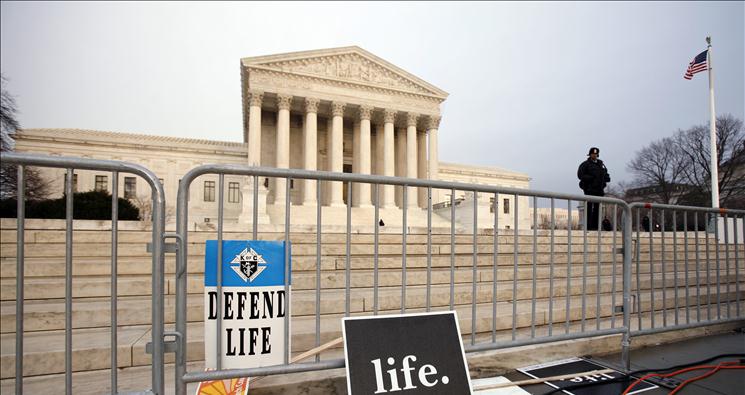SCOTUS Protects Religious Freedom, For Now
Today, the U.S. Supreme Court granted the Little Sisters of the Poor a critical and necessary injunction that allows them to adhere to their religious beliefs while their case against the HHS Mandate goes up on appeal.
Here’s some background: in late September, 2013, the Little Sisters of the Poor, an order of Catholic Sisters who serve elderly people in need, filed suit against the government and its Mandate. The Sisters claim that requiring them to sign and submit a “self-certification” form, which would shift the responsibility of paying for the abortion-inducing drugs and devices to someone else, violates their religious freedom as protected by the First Amendment and federal law.
As explained by David French here, it is critical to note that the form at issue doesn’t act as an exemption or an “opt out.” Rather, the form empowers a third party (such as an insurance carrier or third party administrator) to provide the very drugs and services to which the religious employer object. (This is the government’s so-called “accommodation” of non-profit, religious organizations.)
Founded upon and inspired by Catholic teachings and principles, the Little Sisters not only believe that abortion, contraception, and sterilization are wrong, they believe they cannot take any affirmative steps that would facilitate the use of such drugs and services. Thus, according to the Little Sisters, executing the self-certification form, which would directly authorize the provision of abortion and contraceptive services to which they object, makes them materially complicit in wrong-doing, forcing them to contradict their deeply held religious beliefs.
Without any judicial relief, the Little Sisters would have faced a stark choice on January 1, 2014, the day the Mandate would have applied to their health plan: (a) sign and submit the form, thereby violating their religious beliefs; or (b) refuse to sign the form and pay crippling penalties. (If the Little Sisters and the nearly 500 Catholic non-profit ministries which provide benefits through the Christian Brothers Trust fail to comply with the Mandate, they collectively face fines exceeding $1.1 million for every day they do not comply, fines that would exceed $400 million over the course of just one year.)
On December 27, just four days before the full measure of the Mandate would fall on them, the district court in Colorado denied the Little Sisters a preliminary injunction, holding that signing the government form would not substantially burden their religious exercise.
After the Little Sisters filed an emergency motion with the Tenth Circuit Court of Appeals, asking for the injunctive relief that the district court refused to give them, the court of appeals also denied them any remedy.
The Little Sisters then had no alternative but to seek immediate and emergency relief from Justice Sotomayor, the justice assigned to handling such motions arising out of the Tenth Circuit.
On New Year’s Eve, the night before the Little Sisters would have been to put to the choice of signing away their religious freedom or paying exorbitant fines to exercise that freedom, Justice Sotomayor gave the Little Sisters a temporary reprieve, ordering the government to respond to their motion three days later.
The government did so, the Little Sisters replied, and now the Supreme Court has spoken.
Upon Justice Sotomayor’s referral of the Little Sisters’ motion to the entire court, it ruled that while the Little Sisters’ appeal moves its way through the appeals process, the Sisters will be permitted to do what they have always done: provide a health plan for their employees consistent with their religious beliefs. They need only, according to the Court, inform HHS Secretary, Kathleen Sebelius, in writing that “they are non-profit organizations that hold themselves out as religious and have religious objections to providing coverage for contraceptive services.” That’s it. They do not have to sign and submit the government form that would authorize the drugs and services to which they are religiously opposed; nor do they have to provide their written statement to any health plan administrator.
While today’s decision is not a ruling on the final merits of the Little Sisters’ case (the Court’s order stresses this fact), it’s a positive sign that the Court is taking this issue, an issue of enormous consequence for religious freedom in this country, very seriously.
Only a few years ago, no one would have imagined that the federal government would ever seek to force a congregation of Catholic sisters, whose mission is to serve the Lord by serving the needy and elderly, to violate their religious beliefs.
Sadly, and ashamedly, the government is now trying to do just that. And while today’s decision marks a loss for the government, the fight is far from over. We must work tirelessly to see that the government ultimately loses in this unconstitutional and ideologically driven agenda; an agenda that shows little respect indeed for the rights of religious freedom and conscience.
